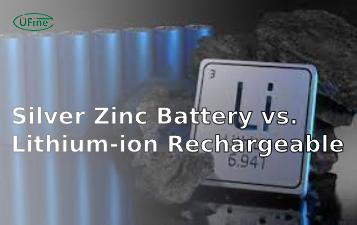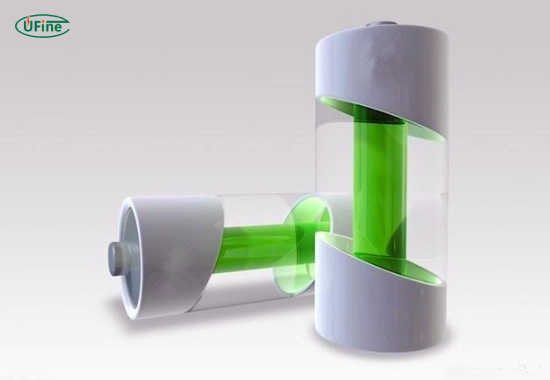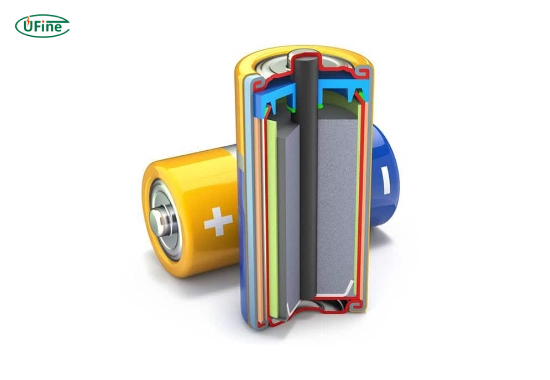
- Part 1. What is a lithium 1.5V battery?
- Part 2. What are the advantages of lithium 1.5V batteries?
- Part 3. What are the common uses of lithium 1.5V batteries?
- Part 4. How do lithium 1.5V batteries compare to other battery types?
- Part 5. Are there any disadvantages to using lithium 1.5V batteries?
- Part 6. How should you store lithium 1.5V batteries?
- Part 7. How do you safely dispose of lithium 1.5V batteries?
- Part 8. Can you recharge lithium 1.5V batteries?
- Part 9. What should you consider when choosing a battery type?
- Part 10. FAQs
In today’s tech-driven world, the lithium 1.5V battery has emerged as a popular choice for powering various devices. From household electronics to medical equipment, these batteries offer numerous advantages that make them stand out from traditional alkaline options. This article delves into the advantages, uses, and comparative benefits of lithium 1.5V batteries, providing a comprehensive overview for consumers and industry professionals.
Part 1. What is a lithium 1.5V battery?
A lithium 1.5V battery is a primary (non-rechargeable) battery that utilizes lithium as its anode material. Lithium batteries are known for their superior energy density and longer shelf life, unlike traditional alkaline batteries, which use zinc and manganese dioxide.
Key Characteristics
- Voltage: Typically rated at 1.5 volts, similar to alkaline batteries.
- Chemistry: Composed primarily of lithium metal or lithium compounds.
- Size: Available in various sizes, including AA, AAA, C, D, and 9V.
Part 2. What are the advantages of lithium 1.5V batteries?
Lithium 1.5V batteries offer several distinct advantages over their alkaline counterparts:
Longer Shelf Life
Lithium batteries can last up to 10 years in storage without significant power loss, making them ideal for emergency devices and infrequently used gadgets.
Lightweight
Lithium batteries are generally lighter than alkaline batteries, enhancing portability in devices like cameras and remote controls.
High Energy Density
These batteries provide more power per unit weight, allowing devices to run longer without frequent replacements.
Wide Operating Temperature Range
Lithium batteries perform well in extreme temperatures, from -40°C to +60°C (-40°F to +140°F), making them suitable for outdoor and extreme environment applications.
Low Self-Discharge Rate
Lithium 1.5V batteries have a lower self-discharge rate than alkaline batteries, meaning they retain their charge longer when unused.
Part 3. What are the common uses of lithium 1.5V batteries?
Lithium 1.5V batteries find applications across various sectors due to their unique properties:
Consumer Electronics
- Digital Cameras: Provide reliable power for high-drain devices.
- Remote Controls: Ensures long-lasting performance for household remotes.
Medical Devices
- Hearing Aids: Offer extended battery life crucial for daily use.
- Blood Glucose Monitors: Reliable power source for critical health monitoring.
Industrial Applications
- Sensors: Power remote sensors used in monitoring systems.
- Backup Systems: Used in UPS systems for critical data preservation.
Part 4. How do lithium 1.5V batteries compare to other battery types?
When considering lithium 1.5V batteries, it is essential to compare them with alkaline batteries and other common battery types, such as nickel-metal hydride (NiMH) and zinc-carbon batteries. Each type has unique characteristics, advantages, and disadvantages, making it suitable for different applications. Here’s a deeper look into how these battery types compare.
Comparison with Alkaline Batteries
Alkaline batteries are the most widely used type of disposable battery. They are often favored for low-drain devices due to their cost-effectiveness. However, lithium batteries excel in several areas:
- Shelf Life: Lithium batteries can last up to 12 years in storage, while alkaline batteries typically last 5 to 10 years.
- Energy Density: Lithium batteries have a higher energy density, providing more power in a smaller size.
- Temperature Range: Lithium batteries perform well in extreme temperatures, from -40°C to +60°C, compared to alkaline batteries which function optimally between -20°C and +55°C.
- Weight: Lithium batteries are significantly lighter, which is beneficial for portable devices.
Comparison with Nickel-Metal Hydride (NiMH) Batteries
NiMH batteries are rechargeable and are commonly used in high-drain devices like digital cameras and power tools. Here’s how they compare:
- Voltage Output: NiMH batteries typically provide 1.2V, which may be insufficient for some devices that require a stable 1.5V output.
- Recharge Cycles: NiMH batteries can endure around 300 to 500 recharge cycles, whereas lithium rechargeable options can last up to 1200 cycles.
- Self-Discharge Rate: NiMH batteries have a higher self-discharge rate than lithium, which means they lose charge faster when unused.
Comparison with Zinc-Carbon Batteries
Zinc-carbon batteries, another common type of primary battery, are often less expensive but come with several limitations:
- Energy Capacity: Zinc-carbon batteries generally have lower energy capacity than lithium and alkaline options.
- Shelf Life: They typically last only about 3 years, making them less suitable for long-term storage.
- Performance in High-Drain Devices: Zinc-carbon batteries perform poorly under high-drain conditions, unlike lithium or alkaline batteries.
Summary of Key Comparisons
| Feature | Lithium 1.5V Battery | Alkaline Battery | NiMH Battery | Zinc-Carbon Battery |
| Shelf Life | Up to 12 years | 5-10 years | 3-5 years | ~3 years |
| Voltage Output | 1.5V | 1.5V | 1.2V | 1.5V |
| Energy Density | High | Moderate | Moderate | Low |
| Operating Temperature Range | -40°C to +60°C | -20°C to +55°C | -20°C to +50°C | -10°C to +50°C |
| Weight | Lightweight | Heavier | Heavier | Heavier |
| Rechargeable | Some types available | No | Yes | No |
| Recharge Cycles | Up to 1200 | / | 300-500 | / |
Part 5. Are there any disadvantages to using lithium 1.5V batteries?
While lithium 1.5V batteries offer many benefits, they also come with some drawbacks:
Cost
Lithium batteries tend to be more expensive than alkaline options, which can be a consideration for bulk purchases.
Disposal Concerns
Improper disposal can lead to environmental issues; therefore, recycling is essential.
Part 6. How should you store lithium 1.5V batteries?
Proper storage can significantly extend the lifespan of lithium batteries:
- Recommended Practices
- Store in a cool, dry place away from direct sunlight.
- Please keep them in their original packaging until ready for use.
- Avoid exposing them to extreme temperatures or humidity.
Part 7. How do you safely dispose of lithium 1.5V batteries?
Disposing of lithium batteries requires careful consideration due to environmental impacts:
Disposal Methods
- Utilize designated recycling centers that accept lithium batteries.
- Follow local regulations regarding hazardous waste disposal.
Part 8. Can you recharge lithium 1.5V batteries?
Typically, lithium 1.5V batteries are not designed for recharging:
Key Points
- They are primary cells and should be treated as disposable.
- Rechargeable alternatives like lithium-ion or nickel-metal hydride (NiMH) are available for rechargeable needs.
Part 9. What should you consider when choosing a battery type?
When selecting between battery types, consider the following factors:
Usage Requirements
Determine the power needs of your device.
Cost vs. Performance
Evaluate whether the higher cost of lithium is justified by its performance benefits.
Environmental Impact
Consider recycling options and disposal methods for each battery type.
Part 10. FAQs
-
What devices commonly use lithium 1.5V batteries?
Lithium 1.5V batteries are commonly used in digital cameras, remote controls, medical devices like hearing aids, and various sensors. -
How long do lithium 1.5V batteries last once opened?
Once opened and used in devices, their lifespan varies based on usage but generally lasts longer than alkaline counterparts due to lower self-discharge rates. -
Are there any safety concerns with using lithium batteries?
While generally safe, improper handling or disposal can pose risks like leakage or fire hazards. -
Can I mix different types of batteries in my device?
It is not advisable to mix different types of batteries (e.g., lithium with alkaline) as it can lead to leakage or reduced performance. -
Where can I buy lithium 1.5V batteries?
You can purchase them at electronics stores, supermarkets, or online retailers specializing in battery products.
Related Tags:
More Articles

What is the Difference Between Silver Zinc Battery vs. Lithium-ion Rechargeable?
Compare silver zinc and lithium-ion rechargeable batteries: energy density, cycle life, safety, cost, and uses in drones, medical devices, EVs, and electronics.
What are Watts and Watt Hours in Battery?
Understand watt vs watt-hour in batteries: key differences, how to calculate capacity, and why they matter. Includes free comparison table.
Best 10 Blood Pressure Monitor Battery Review: Finding the Most Reliable
Are you looking for a reliable Blood Pressure Monitor battery? Here is a complete guide with the top 10 best blood pressure monitor batteries.
Bluetooth Headphone Battery Guide: All You Need to Know
Maximize headphone battery life with expert tips! Learn how to charge, check, troubleshoot, and choose the best bluetooth headphone battery in 2025.
LiFePO4 Battery VS. Lithium-ion Polymer Battery: Which One Is Best?
Comprehensive comparison of LiFePO4 vs Lithium Ion Polymer batteries: energy density, safety, lifespan, cost. Find out which battery suits your needs in 2025.




